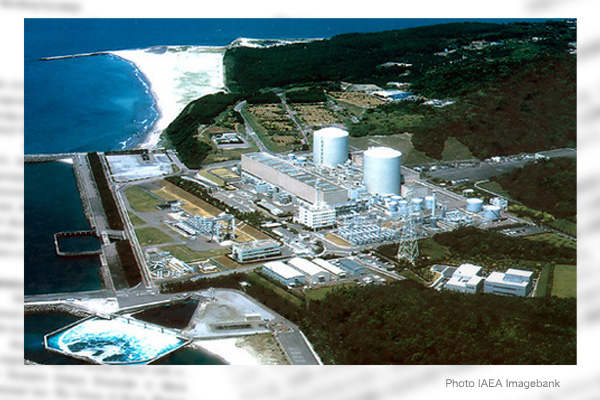On March 16, Kyushu Electric Power Co. shut down Unit 1 of its Sendai Nuclear Power Station in Kagoshima Prefecture, western Japan. As the deadline for completing an anti-terrorism facility to counter an attack using a hijacked aircraft was to expire soon, the power company voluntarily stopped the operation of the nuclear reactor before being ordered to do so. Unit 2 is set to stop on May 26.
Warning that the shutdown would seriously affect the Kyushu region’s economy that has already been hit hard by the new coronavirus outbreak, Kyushu business leaders have launched a campaign for collecting signatures calling for operating the nuclear plant. A press report says that 3,000 signatures have been collected.
Barriers would be effective for deterring terrorist attacks
The anti-terrorism facility is designed to prevent radioactive materials from being released from a nuclear power station if a hijacked aircraft crashes into the power station. The Nuclear Regulation Authority allows nuclear power stations to remain in operation as far as anti-terrorism facilities are completed within five years after its approval of construction plans to conform nuclear plants to new regulatory standards established after the 2011 nuclear accident in Fukushima.
The Japan Institute for National Fundamentals published a policy proposal titled, “Get Nuclear Power Back to Japan” on December 4, 2019 and distributed it to lawmakers and news media. The proposal urged to prevent nuclear plants from being shut down for the reason of a delay in the completion of anti-terrorism facilities. It recommended to construct barriers such as poles, wire fences, barrage balloons (balloons tied to the ground with metal ropes to prevent aircraft from flying below balloons) around nuclear power plants as a powerful deterrence to aircraft’s crashes into those plants.
However, power companies have made no move to establish such anti-aircraft barriers. Any reason for refraining from doing so remained unknown until recently when multiple sources informed me that power companies undergo tortuous documentary examinations behind closed doors before publicly open NRA meetings to examine applications for restarting nuclear power plants. The NRA has frequently threatened to delay examinations unless power companies follow its instructions, according to the sources.
In an interview with the Hokkaido Shimbun newspaper released upon the NRA’s inauguration on April 30, 2013, former Prime Minister Naoto Kan said: “10 or 20 nuclear power plants would not be restarted so smoothly. This is because we disbanded the Nuclear and Industrial Safety Agency and created the Nuclear Regulation Authority.” This means that Kan’s nuclear-phaseout policy is embedded on the NRA’s DNA and prevents, like a virus, reasonable regulations from working.
Corona crisis amounts to energy security crisis
In late March, the new coronavirus outbreak spread on the U.S. aircraft carrier Theodore Roosevelt, forcing 2,700 crewmembers to be quarantined on Guam Island. The carrier assuming part of the U.S. military’s oversea deployment has fallen into malfunction. It is uncertain how long Japanese tankers could continue to transport crude oil, natural gas and coal from the Middle East and other parts of the world to Japan. If the transportation is stopped because of the virus or any other reasons, Japanese fossil fuel power plants could no longer operate. Hospitals could fail to work. Long time is required for restarting nuclear power plants. Japan should avoid the shutdown of restarted nuclear power plants and accelerate examinations for restarting others.
Tadashi Narabayashi is a specially appointed professor at the Tokyo Institute of Technology and a director at the Japan Institute for National Fundamentals.


